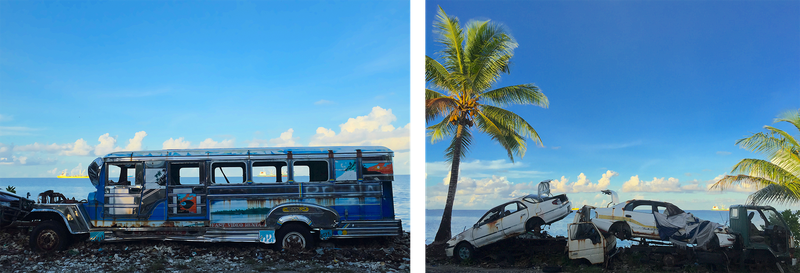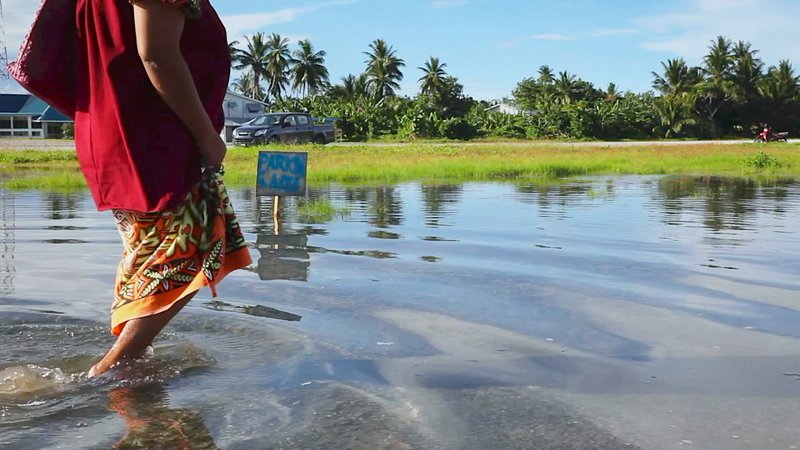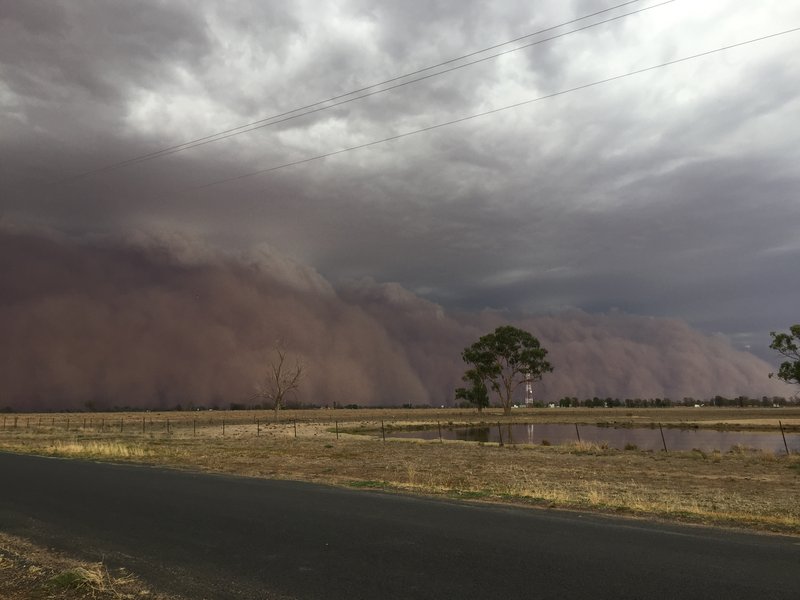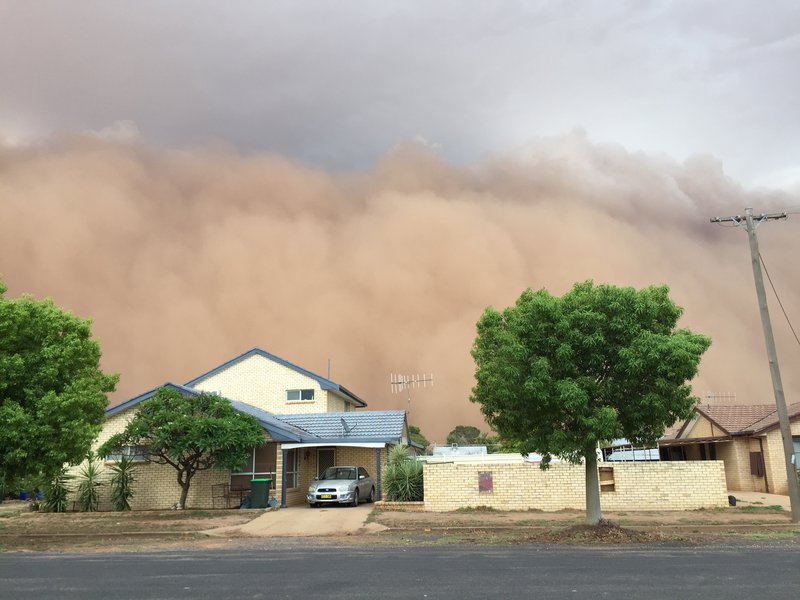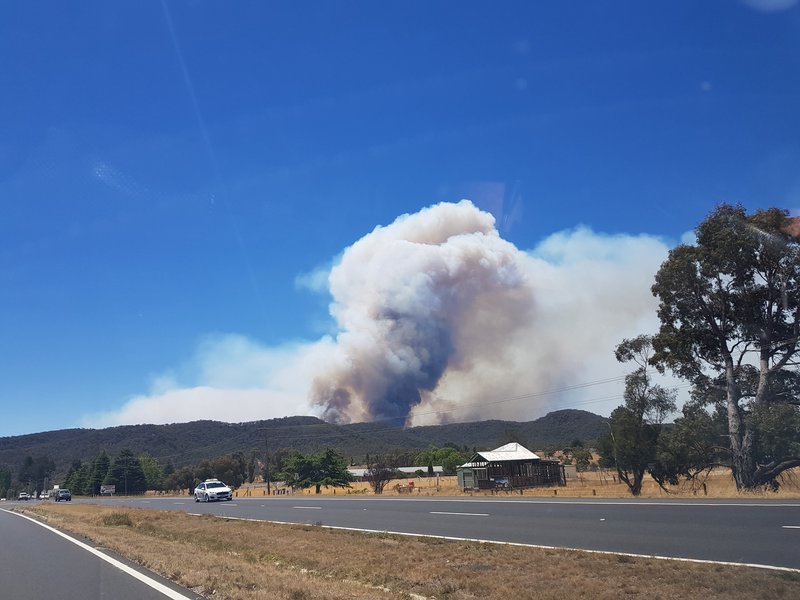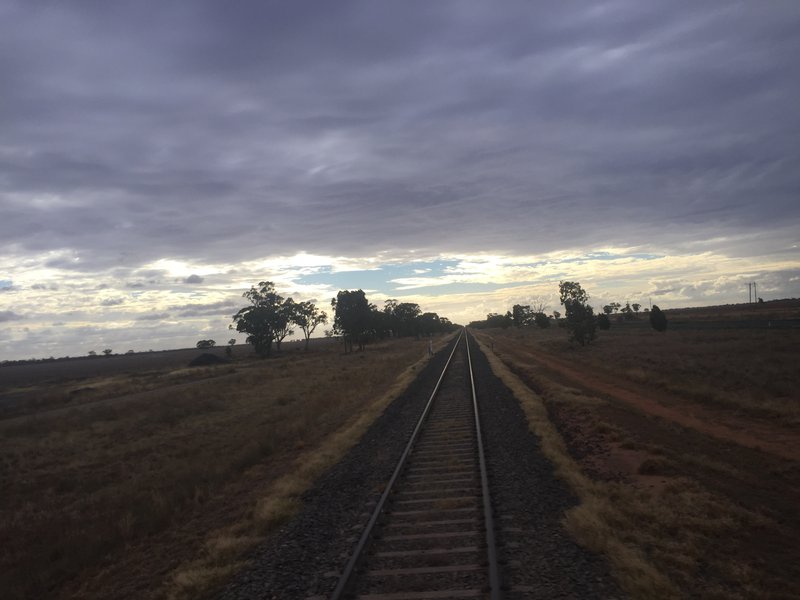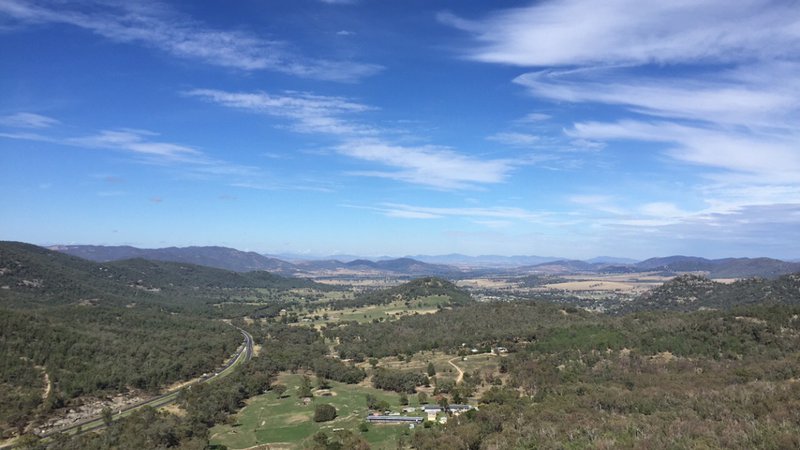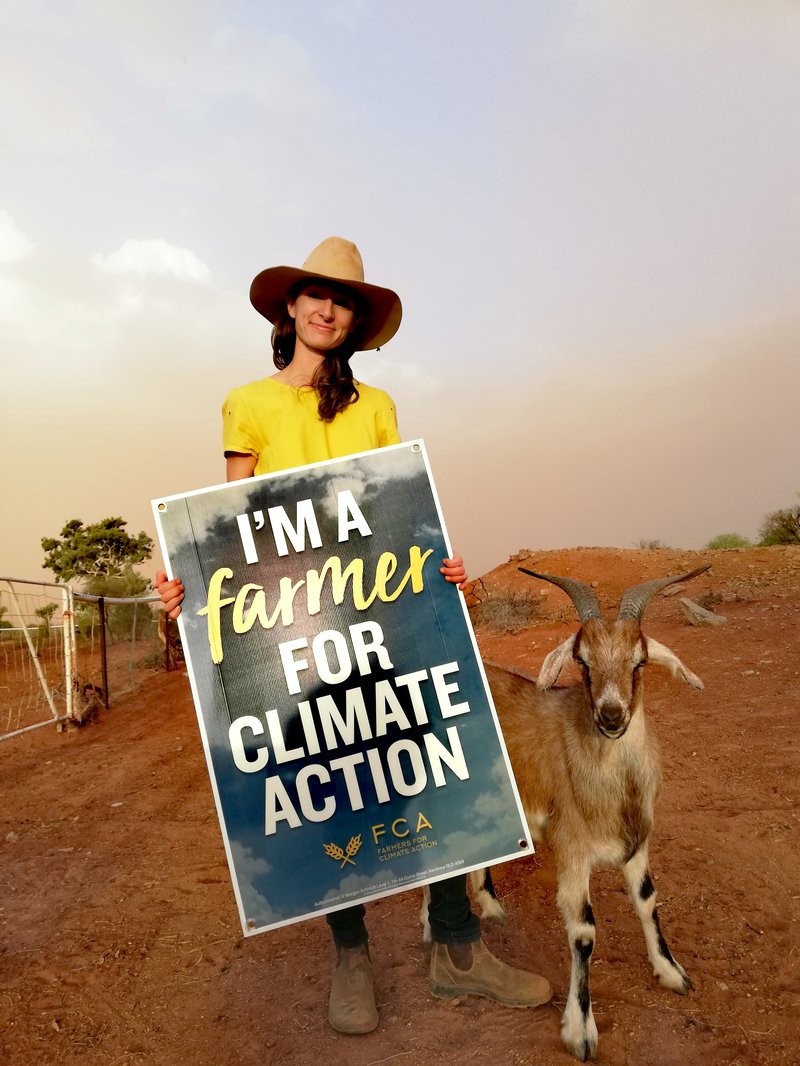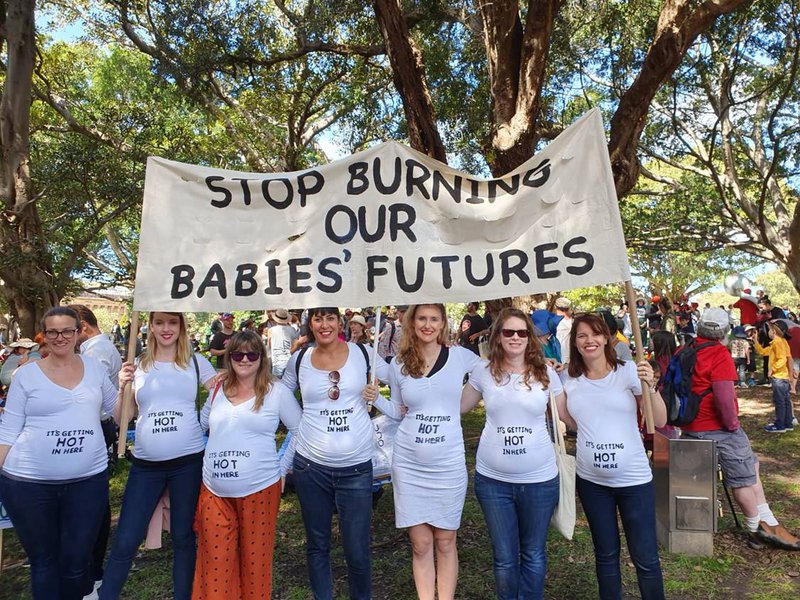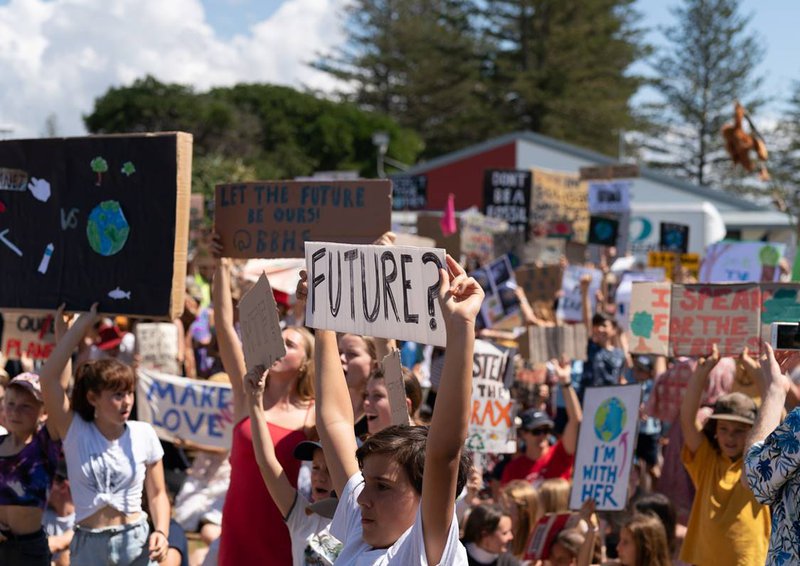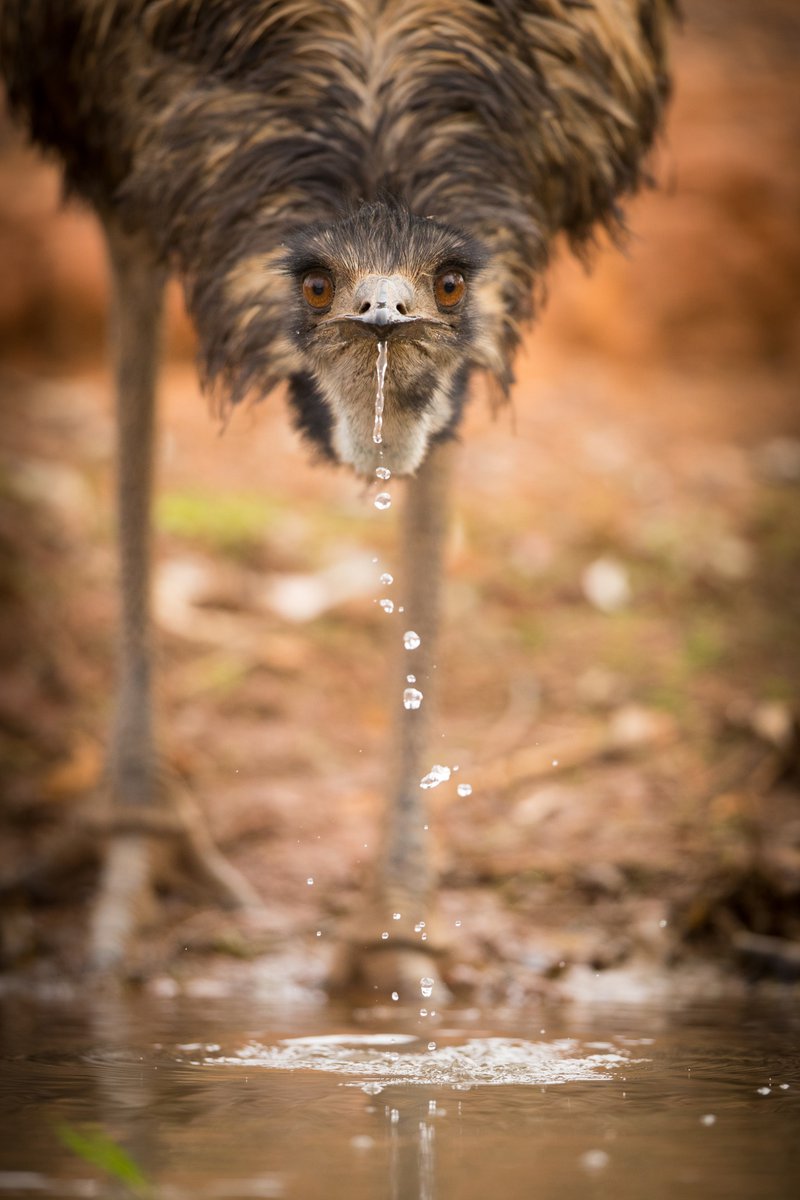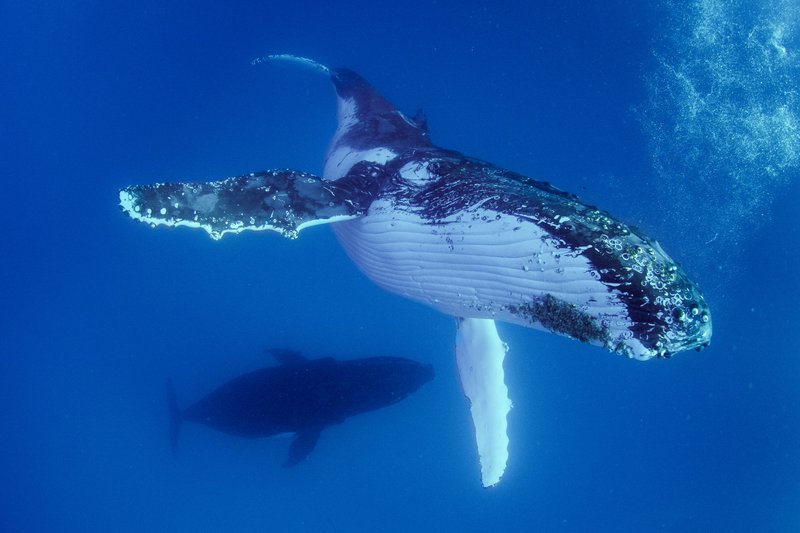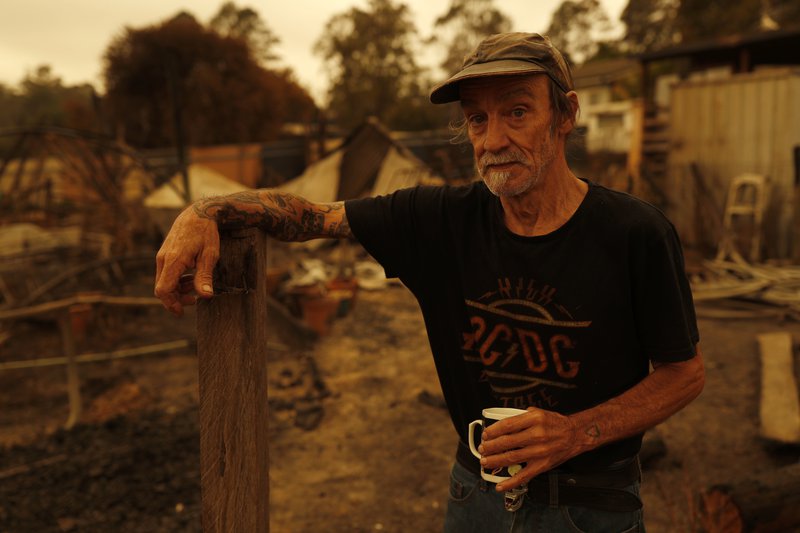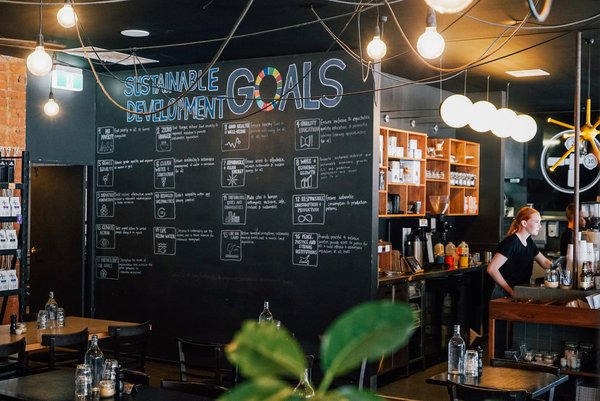Capturing Climate Change
What are you seeing in our climate-changed corner of the world? Check out our monthly guest contributors, and share your views with the #CapturingClimateChange online gallery.
Submit your photo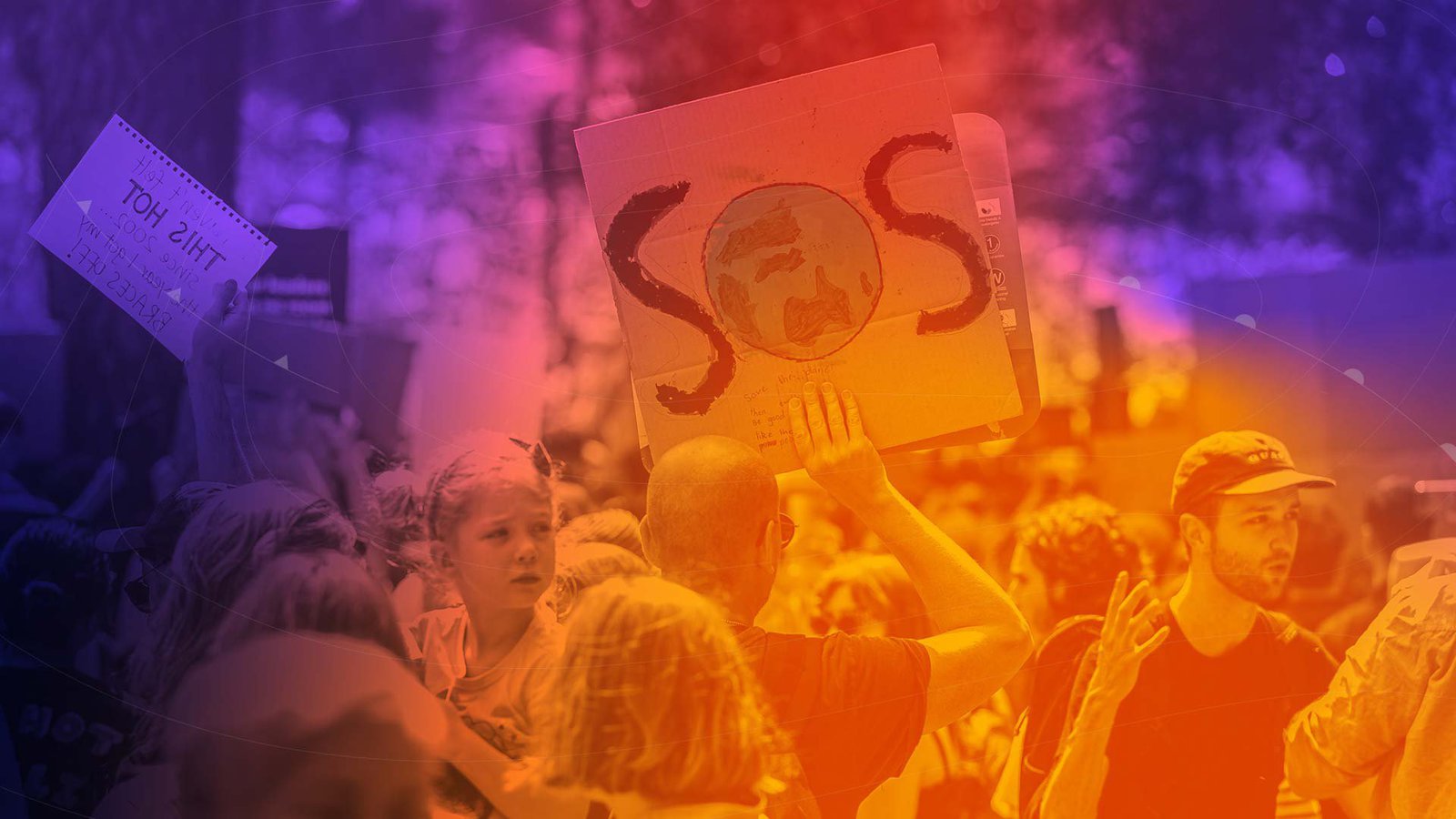
Guest Contributors:

Climate Change
through the lens of Angela Tiatia
Pacific Island nations are running out of time. If global emissions are not drastically reduced, thousands of low-lying atolls will become uninhabitable within decades. Climate change is essentially a Developed/Developing nations problem for us to work on. Pacific nations require us to urgently change our consumer behaviour and value systems to create the momentum for change they need. We need to use our power to manage this crisis.
I have two ways of approaching my work; some works are personal examinations of the self and external forces upon it, others explore external issues directly impacting on individuals, communities and islands of the Pacific that are very special to me. These two modes examine the same theme: Power.
In the case of climate change, there is a fundamental imbalance of power between small Island nations and Developed/Developing countries. Small Island nations in the Pacific are responsible for only 0.03 percent of the world’s carbon dioxide emissions, and yet the millions of people who live in the Pacific are the first to suffer the earliest and most severe consequences.
Many thanks to the staff and supporters of The Australian Museum for this opportunity to share stories with you. May we all come together in strength and purpose in this movement for change.

Climate Change
through the lens of Janet Laurence
I am keenly aware of our interconnection with the changing landscapes of nature and how these are collapsing and deranging through climate change as well as direct actions by people in their quest for economy over environment. My practice is embedded in an aesthetics of care and I have an empathetic connection to animals and plants, both on the earth and within the aquatic world. Through my images, I try to acquaint others with this intimate view and incite an urgency to reconnect with the elemental aspects of nature. Everything I make is dependent upon decades of research, which helps me construct poetic encounters with biophilia that reflect on science, wonder, and environmental loss.

Climate Change
through the lens of Kiah Edwards
I'm from a small town called Narromine, 30 kms west of Dubbo and go to school in Trangie, 30kms west of Narromine NSW. This is my community. Growing up in a small rural/remote town my whole life has been an astounding experience, but it has it lows, one being the crippling drought. My name is Kiah Edwards and I am 17 years old. I am a proud indigenous Australian, part of the Wangkumara Tribe. Climate change. That itself is a big enough statement and if it doesn't scare you, it should. My community has copped a hard blow for the last few years, each getting worse over time. We have suffered the dreadful experiences of the drought. And we're just continuing to get hotter. As a result of this drought we are hit with dust storms, daily.
As a single school student, I thought that I don't have a voice. I thought I wouldn't be heard but climate change has emerged rapidly and the urgency for climate action is being belittled and not taken as serious as it is. Climate change in an emergency, Why are we not treating it like one? If it's not me who stands up in my community to make a change, then who? If I can educate and inform even just one person of the real and very dangerous reality that we are facing, I will be happy. If I can get my message across to one person, they can tell others, who will continue to tell more people.

Climate Change
through the lens of Anna Rose
When it comes to climate change, no one can do everything, but everyone can do something. Having been involved in the climate movement for the past twenty years, I have met so many inspiring, strategic people who are doing their own version of "something" - putting in an incredible amount of their time and effort, skills and talents to solving the climate crisis. These photos show a range of people involved in the Australian climate movement, engaging their own networks, communities and sectors in changing hearts and minds, and ultimately, politics. They sum up my favourite phrase: "those who say it can't be done should get out of the way of those already doing it".
Anna Rose is an author and campaigner who has worked for over two decades to help Australia make progress on climate change. She's a Director of Farmers for Climate Action, a Governor of WWF-Australia, author of the book "Madlands: A Journey to Change the Mind of a Climate Sceptic" and co-starred in the ABC documentary "I Can Change Your Mind on Climate Change". Anna is a Churchill Fellow, a former Myer Foundation Innovation Fellow, an Associate at Melbourne University Sustainable Society Institute and a Visiting Fellow at the ANU Climate Change Centre. She is an advisor to the Jewish Climate Network, an advisory board member of the University of Queensland’s Global Change Institute and The Australian Geographic Society, and a former Director of Solar Citizens, Green Music Australia and the Aussie Farmers Foundation. She is a former Australian Geographic Society Conservationist of the Year, was a finalist in the Australian of the Year Awards, and is the recipient of the Sierra Club's Earthcare Award for International Environmental Protection. Anna co-founded the Australian Youth Climate Coalition and was head of Earth Hour for WWF-Australia. She was recently named one of the Australian Financial Review/ Westpac’s 100 Women of Influence for 2019.

Climate Change
through the lens of Robert Irwin
Right now, our precious planet Earth is at a tipping point. There are many colossal threats facing the world’s wildlife and natural habitat, from the highest Co2 emissions in recorded history to the overfishing of our water ways, pollutants poisoning the very air we breathe and the water we drink, and the depletion of wildlife numbers through poaching and habitat loss. However, the greatest overarching matter now is climate change. Climate change does not just mean warmer temperatures, it has a tremendous influence on our natural world and its effects can be felt in so many different ways, which in turn affects us, humans. It is a historic time, and our natural world is suffering, but it is certainly not too late to make a difference if we act right now, and I believe in the next generation to do just that.
Through Australia Zoo, and our non-profit organisation, Wildlife Warriors, my family and I have always been so passionate about the conservation of the world’s flora and fauna, and on our travels I have seen how climate change touches so many different animals. It would be utterly devastating to lose these species, and I look forward to sharing some of these creatures that I have documented through my passion for photography.

Climate Change
through the lens of Stephen Dupont
I have been photographing war, natural disasters and the human condition most of my life. Without realising till recently I suppose, I have also witnessed through my lens and notes what the world sees now as Climate Change or Climate Crisis. Drought, rising temperatures and oceans and natural disasters are pushing populations into more and more urban environments creating mega cities and greater problems in the end for Humanity I believe. I have gazed upon the living and the dead in earthquakes, typhoons and tsunamis and most recently in my own backyard, the catastrophe of bushfires. While the ice melts, the oceans rise and the land cooks and burns, you would have to be lying to yourself if you deny that we are living through a very real global fight for survival, a fight to save the planet from extinction and a right to protest. It is my generation and older that are to blame for this mess and when I look at my 12 year old daughter and her fears and anxiety about the future of her world, I knot with shame. She acts in every way to try and live a sustainable way, she protests out of school and idolises young Greta. She’s been an inspiration to me that has literally turned my universe upside down. In my very small way I can capture life in all its tragedy and beauty that might make just a little difference, bring a little more awareness, shine a light on our greatest problem today. It feels like my life in photography and what I have documented, everything I have witnessed has been leading to this moment. It is like every story I have ever covered has been leading me to this ultimate story that is Climate Change. The world needs to wake up now, people need to accept that we are living on a ticking time bomb and collectively work for the “environment" right now. In the words of my friend and mentor Bob Brown, “action is better than depression”.
Portrait of Stephen Dupont by Lucy Pinter
Share your images, see what others are capturing and how we are responding. These images chart impacts as well as solutions. They are striking and often beautiful but reveal a planet in peril.
Whether it is drought and fire-scarred homes, tropical animals in once-cool waters, farmers installing wind turbines, protestors marching or kids planting trees – these are the new landscapes we are living in and caring for.
How to submit your own photo
Share your photos with @australianmuseum using the tag #CapturingClimateChange on Instagram or by using the Instagram mobile App.
Go to InstagramDirect Upload
You can also upload now using this form for your image to be considered for our #CapturingClimateChange online exhibition
Image moderation policy
We encourage and welcome your images and supporting captions, but the decision to publish those images received via the website remain at the Australian Museum’s discretion and submissions are moderated. We reserve the right to edit for length or clarity and remove any sensitive, highly political or discriminatory images and comments. The views expressed by any third parties are solely theirs and are not necessarily endorsed by the Australian Museum.
This project was funded by The Horizon Foundation.








